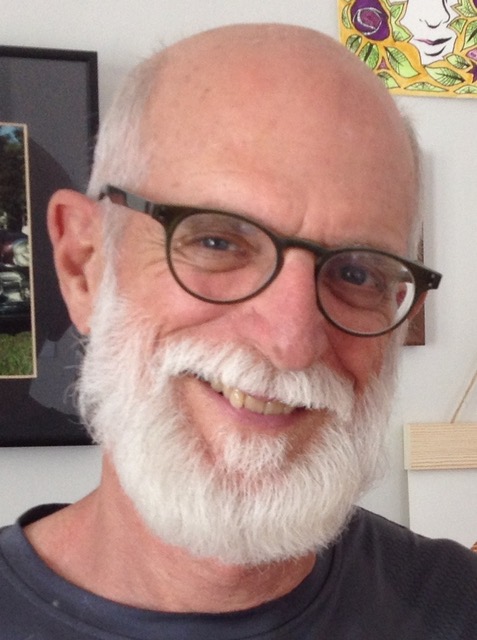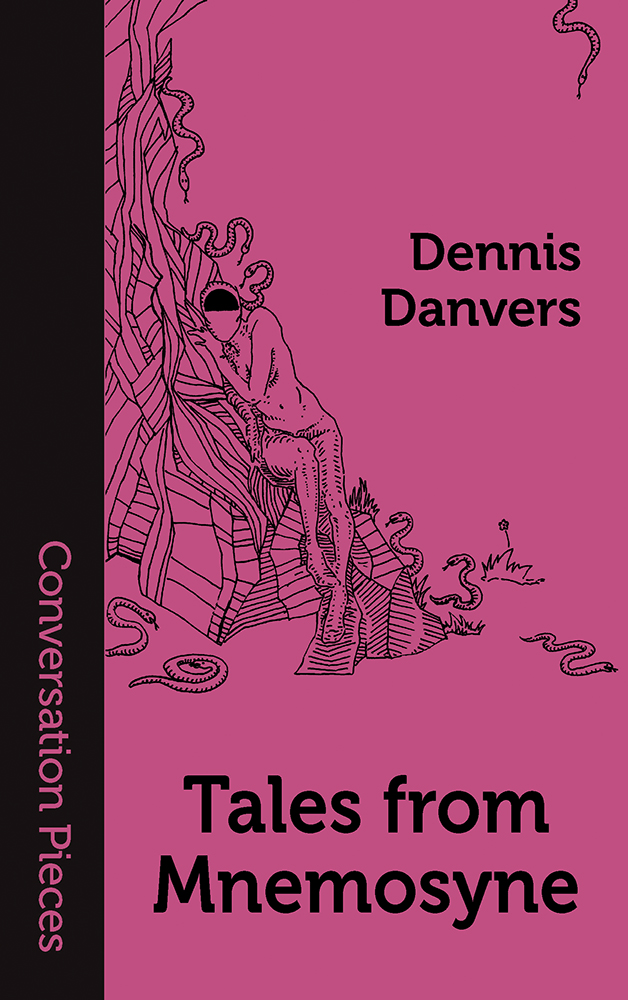Dennis Danvers

Dennis Danvers
When I was in fourth grade in Irving, Texas, we were given the
assignment—after reading Tom Bunyan, Pecos Bill and the like—to write
a Tall Tale! I remember the teacher wrote it in tall letters with a
big exclamation mark to stir our creative juices. I threw myself into
it and wrote a story about a giant raccoon. The plot is lost, but I
remember showing it to my mom who laughed quite a lot reading it. Part
of the assignment was to read the story to the class, and they laughed
too, and most importantly, the teacher, whom I adored, totally cracked
up. I was a nerdy kid, a social flop, but apparently, I was funny. And
I loved to tell stories, especially fantastical ones, served with a
bit of ham.
I loved to read them as well and kept doing so until I had a BA, MA,
and PhD in English with an enduring passion for the more
fantastical—the Romantics, medieval and Renaissance romance, and
Classical literature and mythology. There were quite a few detours
along the way, before I landed in Appalachia teaching at a small
liberal arts college. I was a stone's throw from Jonesborough,
Tennessee, which calls itself the Storytelling Capital of the World,
and they stage an annual festival to prove it. I was teaching Ovid's
Metamorphoses and was struck by the similarity between the playful,
irreverent relationship Ovid has with the yarns he's spinning and that
of his Appalachian counterparts to theirs.
As much as I loved the Classical stories, they were much in need of
retelling. I'd been a practicing Wiccan for a number of years and
could see how the goddesses were getting short shrift, and figured
someone, probably men, must be misremembering some of these
stories. Who better to set the record straight than Mnemosyne, goddess
of memory and mother of the Muses? I toyed with the idea, wrote some
early drafts, but I had little time to write fiction teaching five
classes each semester plus summers, serving as Chair of the Humanities
Division, and generally spending my life teaching, grading, on the
phone, or in a committee meeting.
As it happens, my wife at the time was applying to med school. There
was a school an easy commute away, but I suggested she broaden her
search to better schools—where there were also MFA programs. I figured
that would give me space to put writing first. We moved to Richmond in
1987, and that worked out, to say the least. I finished a novel,
Wilderness, a science-fictional reinvention of the werewolf myth in
which a woman turns into a real wolf and locks herself up like a sane
person would. I sold it big on the strength of a big movie deal that
was not to be, though there is a little British movie out there,
that's okay except they totally fuck the ending (just saying).
I then did Time and Time Again, a reincarnation story in which the
protagonist remembers his past lives and is spurred by that knowledge
to change. I lost my wonderful editor in midbook to be replaced by
(ahem) a less wonderful one. Then I wrote Circuit of Heaven, the book
I'm best known for. I'd had the story of virtual immortality in my
head for a long time. I'd read stories in the sixties that used
virtual life, but the plot was always the discovery that life wasn't
real but a simulation. Why waste a great idea on a surprise ending?
Immortality's fairly inviting, and our lives are more virtual all the
time. I imagined an intentional virtual heaven, and an abandoned world
of those who wouldn't want to go. I was rereading Romeo and Juliet
when the idea struck me to tell a star-crossed love story set in the
two worlds. I still had more to say about that world and wrote End of
Days, which is one of my personal favorites. After traveling in Mexico
for a few months in the wake of the Zapatista uprising, I wrote The
Fourth World, which is an unsparing critique of neoliberalism and the
exploitation of the third world woven around a Mars story. It's the
only book of mine with a space ship on the cover. Then I wrote The
Watch which tells the story of Peter Kropotkin, "The Anarchist
Prince," time-traveling from his deathbed to modern day Richmond,
Virginia, when the odious Confederate Monuments were still
standing. At this point, Harper Collins bid me farewell, and I snuck
into bookstores under a pseudonym, Robert Sydney, with a comic noir
novel, The Bright Spot, in The Thin Man vein about the dehumanization
of labor and Frankenstein. I then did Bad Angels, a reinvention of the
fallen angel myth, part Milton and Blake, lots of fun, and
atheist-friendly; it's an unabashed love letter to Richmond. Shortly
before the pandemic, I finished two novels, The Perfect Stranger (a
woman-ghost love story about genre and authorship) and The Soothsayer
& the Changeling (a dark fantasy about climate change and free will)
that were released to near anonymity during the pandemic. Leaving the
Dead, a story collection came out in 2023. Along the way I've
published stories in Strange Horizons, Apex, F&SF, Lady Churchill's
Rosebud Wristlet, Tor.com, Lightspeed, Electric Velocipede, and
elsewhere.
Meanwhile, these goddesses kept showing up, and I started reading
these stories at ICFA, where, just like in fourth grade, I made the
whole room laugh and maybe ponder what it might be like to be
something weird like a giant raccoon sitting up in a tiny tree.
Enjoy.

|